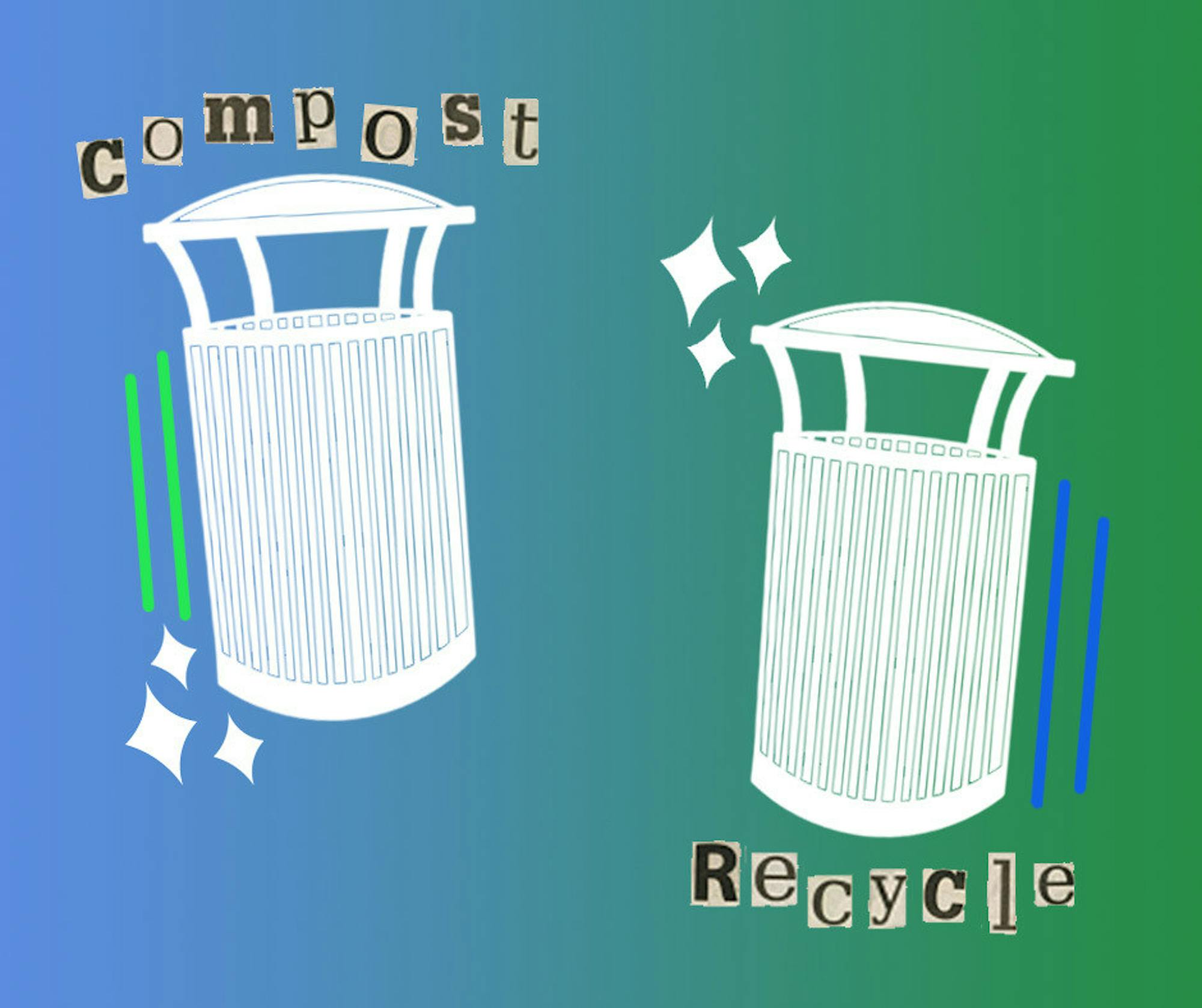
When I walked into my freshman dorm on move-in day, it appeared to have everything I would need: a bed, desk, multiple drawers and dressers. That is, until I had to throw away some of my moving day trash. To my surprise, my dorm room only came with a single bright blue recycling bin. Nothing more. Little did I know, this was only the beginning. I soon found that the entire campus seemed to suffer from a mysterious lack of landfill bins. The meal containers from food trucks on Saturday nights. The twist ties on my chip bags. The gum wrapper in my pocket. They all proved difficult to throw out.
While Emory’s attention to sustainability is admirable, eliminating landfill bins is not the solution. If Emory truly wants to encourage recycling and sustainability, it must put more trash bins on campus.
Students want sustainability just as much as the University, but the inability to put trash in the landfill exacerbates the problem. “I’m a little skeptical that the lack of landfill bins available on campus actually results in greater sustainability,” Ada Demling (25C) said. “I think that Emory should be more realistic with their approach to landfill on campus.”
Emory students frequently have no choice but to put their trash in the wrong place. Not all waste can be thrown in the compost or recycling, but waste thrown in the wrong bin could contaminate the entire load. “When there aren't trash cans in close proximity, students usually try to decide if their trash is more closely related to compost or recycling and put it in one of those bins,” Deena Goodgold (25C) said. In other words, when students inevitably throw landfill items into those blue recycling bins, it brings the entire recycling process down. Emory uses both “five-stream recycling” and a “dual-stream setup.” The first includes compost, plastics and metals, mixed paper, white paper, and landfill while the latter only has recycling and compost. One of Emory’s recycling vendors sorts out items that are not recyclable and burns them for fuel. Given that sorting itself takes an enormous amount of time and resources, Emory’s sorting system puts the burden on students to sort their trash to make sure recycling centers can run efficiently.
When a load of recyclable materials gets contaminated by landfill items, the entire shipment will be turned away. The average recycling contamination rate is 25%, meaning that 1 in every 4 recycled items is contaminated. One major issue is food contamination. Items like pizza boxes and unrinsed jars can taint an entire load of material that would otherwise be recycled. Broken glass shards and loose shredded paper also pose a problem, getting mixed in with other items and making them difficult to recover and sort. Emory’s lack of landfill only serves to encourage recycling contamination. As Goodgold pointed out, “It is inevitable that students will need to throw away some trash during the day, and having trash cans in addition to recycling and compost bins can help sort the waste more accurately.”
Landfill items also affect the entire efficacy of recycling centers. For one, the machines that sort recycling are only able to sort recycling. In 2015, The Chicago Tribune reported on plastic bags clogging machines at recycling centers around the city, with one director estimating that it costs an extra $9,500 a month in labor to untangle bags from machines. Every setback delays the process and backs up the recycling center.
Recycling helps the environment and decreases waste, but not at the expense of eliminating trash cans from our lives completely. Emory should continue its efforts at sustainability, and adding landfill bins would, ironically, be a major step forward. Dorm rooms should come with both recycling and landfill bins, so that students would not be forced to automatically throw items meant for the landfill into the recycling or compost for lack of options. Instead of forcing students to sort recycling into three different bins, the University should encourage students to differentiate between landfill and recycling — the only sorting that ultimately makes a difference. In addition, Emory should work harder to educate students about where items should be sorted, and the recycling process as a whole.
Emory wish cycles, tossing anything and everything into the recycling with the hope that it is somehow recyclable. In doing so, it sabotages its own efforts at creating a sustainable campus, and inhibits the recycling process all together. Landfill is not something that magically becomes recyclable or can be wished away. It must be thrown out.
Chaya Tong (25C) is from the Bay Area, California.





